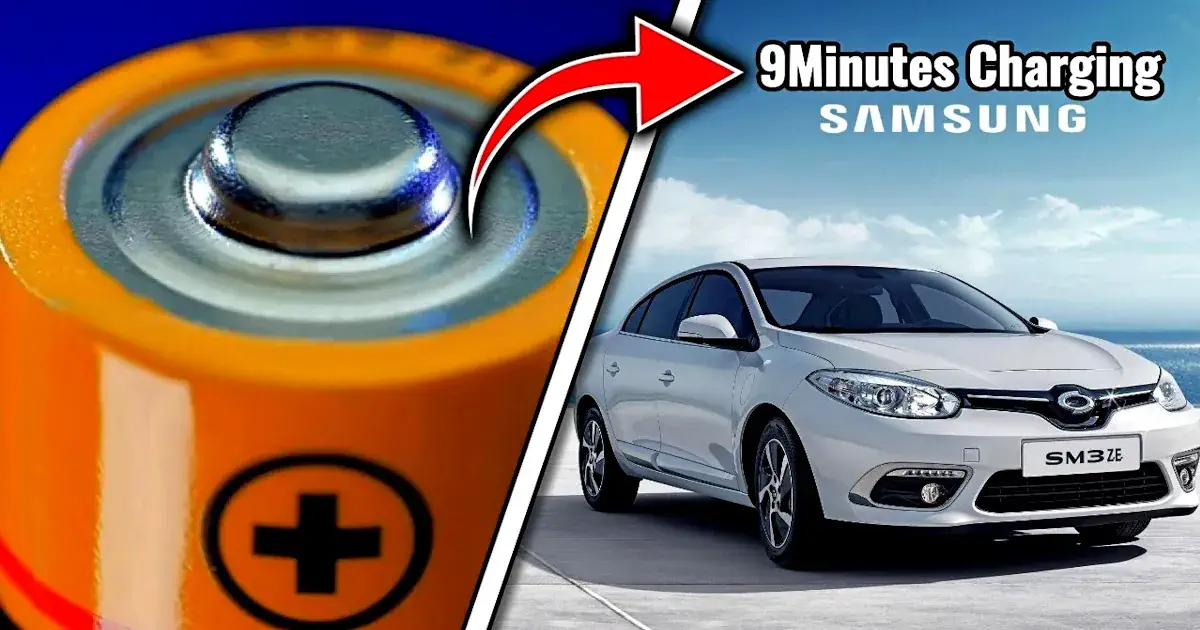
Samsung has made a major advancement in the electric vehicle (EV) industry with its new solid-state batteries. This innovative technology promises to improve EV performance, range, and charging times. Let’s delve into the details.
Samsung’s Solid-State Battery: A Closer Look
At the SNE Battery Day 2024 expo in Seoul, South Korea, Samsung revealed its fully operational pilot production line for solid-state EV batteries, a key step towards mass production in 2027.
As Samsung SDI explained, “We built a pilot line last year to mass-produce all-solid-state batteries by 2027.”
Samsung has already delivered initial batches of the new batteries to EV manufacturers for testing.

Enhanced Performance and Range
These solid-state batteries could give electric vehicles a 600-mile range, charge in 9 minutes, and last 20 years.
Samsung’s new solid-state batteries are also expected to be smaller, lighter, and safer than current lithium-ion batteries, potentially revolutionizing the EV industry.

However, due to high production costs, these batteries will initially be used in the “super premium” EV segment, offering a driving range of around 600 miles per charge. Additionally, Samsung plans to introduce high-nickel NCS products for the premium segment.
Higher Energy Density and Charging Speed
Samsung’s oxide solid-state battery technology offers an energy density of 500 Wh/kg, nearly double the 270 Wh/kg density of most current EV batteries. This could likely double the driving range of electric vehicles.

Additionally, Samsung’s 9-minute charging claim likely refers to charging the battery from 10% or 20% to 80% capacity, rather than from 0% to 100%.
This is standard practice in the industry, as charging speeds usually slow down after 80% to protect battery health and longevity.
“We will not only match the price in the popular and entry-level segments, but also mass produce products that can be rapidly charged in 9 minutes by 2026,” emphasized Samsung SDI.
Advantages of Solid-State Batteries
Compared to traditional lithium-ion batteries, Samsung’s solid-state technology offers several benefits:
- Improved performance: Higher energy density for extended range
- Faster charging: Significantly reduced charging times
- Enhanced safety: Reduced risk of fires and explosions
- Smaller and lighter: More efficient use of vehicle space
Samsung’s Broader Battery Strategy
To address cost and accessibility, Samsung is also developing:
- Lithium iron phosphate (LFP) batteries: More affordable and environmentally friendly
- Cobalt-free batteries: Reducing reliance on expensive and ethically sourced materials
- Dry electrode production: Lowering manufacturing costs
Overcoming Challenges
All battery makers are now focusing on offering longer battery lifespans. For instance, CATL and others have announced batteries lasting up to 20 years, often called “million-mile” batteries. Samsung’s goal to extend battery life to 20 years aligns with this trend.
Despite significant progress in solid-state batteries, Samsung faces strong competition from Chinese manufacturers.
Conclusion
Samsung’s solid-state battery is a significant advancement in EV technology. Despite some challenges, Samsung’s focus on innovation and cost management makes it a strong competitor in the evolving battery market. As the industry grows, we can anticipate even more impressive battery developments.













